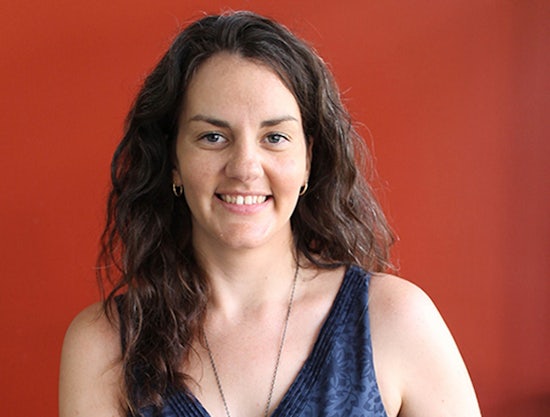Alleviating aged care stress faced by carers
A University of the Sunshine Coast (USC) research project is aiming to help families cope with the ongoing stress that follows the placement of elderly loved ones into aged care facilities.

University student Amanda Axsentieff's research project aims to help families cope with the ongoing stress that follows the placement of elderly loved ones into an aged care facility.
USC Master of Clinical Psychology student, Amanda Axsentieff, is leading the project called Finding Benefits Study, which is being run in conjunction with Queensland aged care provider, NoosaCare.
Ms Axsentieff is calling for primary carers who have experienced placing a loved one in an aged care facility – be they wives, husbands, sons or daughters – to participate in the study.
She says Australia's rapidly ageing population is placing strain on those charged with the care of elderly family members.
“As the number of older persons increases worldwide, greater stress is placed on family members to care for individuals experiencing illnesses and disease associated with old age,” she says.
“Numerous studies have suggested that caring for the elderly places a considerable toll on a person’s physical and mental health.”
Ms Axsentieff says the Finding Benefits Study aims to help families find meaning in being a caregiver.
“There has been substantial research into the effect of moving into an aged care facility for care recipients. A less studied field is the impact of this transition on the family,” she says.
“Primary caregivers often devote many years of their lives to the wellbeing of their partners or parents, only to then experience stress and anxiety when the time comes to place that loved one in an aged care facility.
“Providing coping skills, education and support to caregivers should reduce the amount of guilt and depressive symptoms they experience. In turn, this will support a more engaging relationship with facility staff and ultimately create better quality of life for care recipients.”
Those wishing to volunteer for the study can phone Amanda Axsentieff on 0411 955 421 or email ajh034@student.usc.edu.au. Alternatively, people wishing to participate can provide their details to DPS via email or Facebook and we will then put them in touch with Amanda.











![The new Aged Care Act exposure draft is slated for release in December of 2023, but advocates hope to see it rolled out on January 1, 2024. [Source: Shutterstock]](https://agedcareguide-assets.imgix.net/news/articles/wp/agedcareact__0811.jpg?fm=pjpg&w=520&format=auto&q=65)












Comments